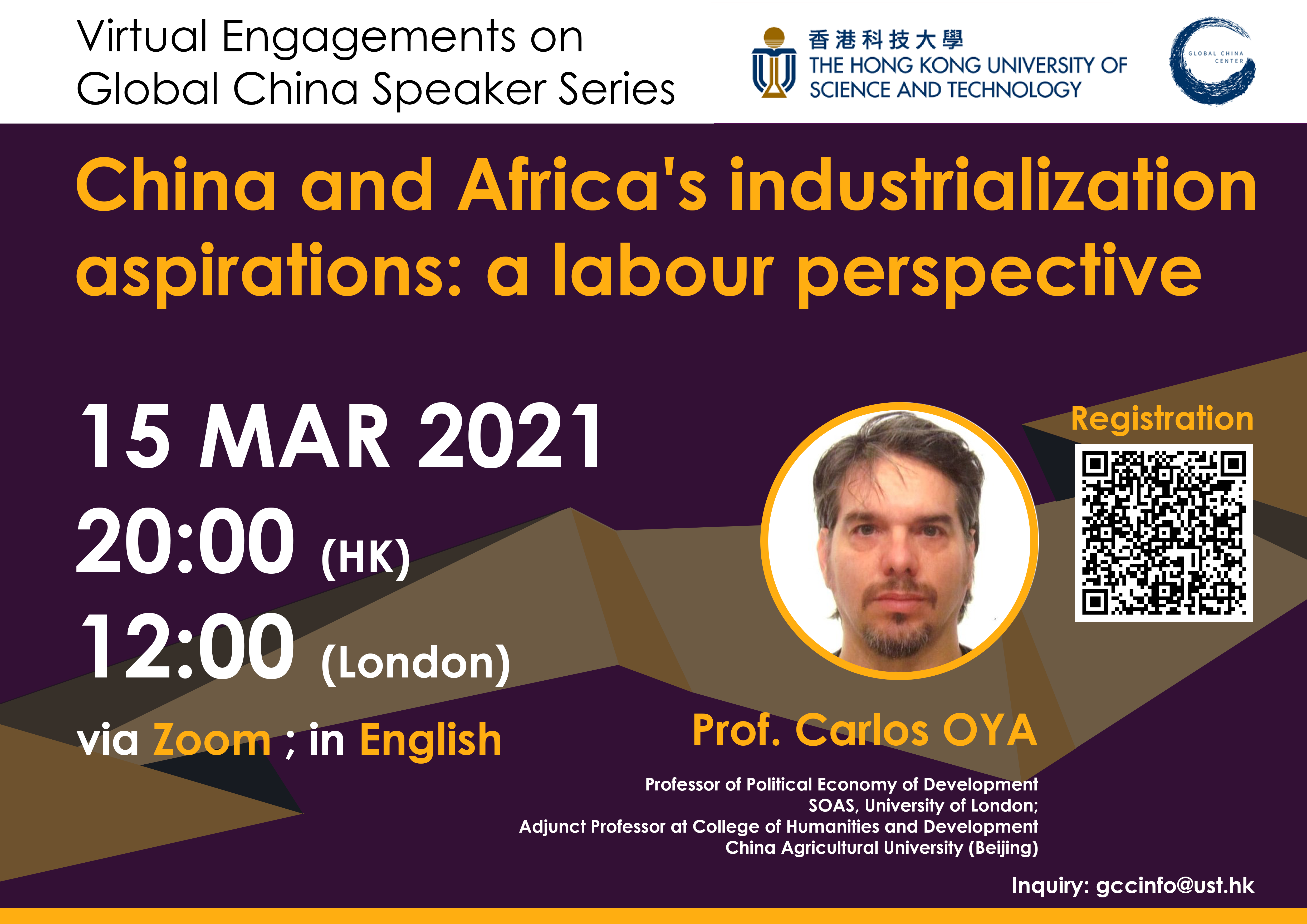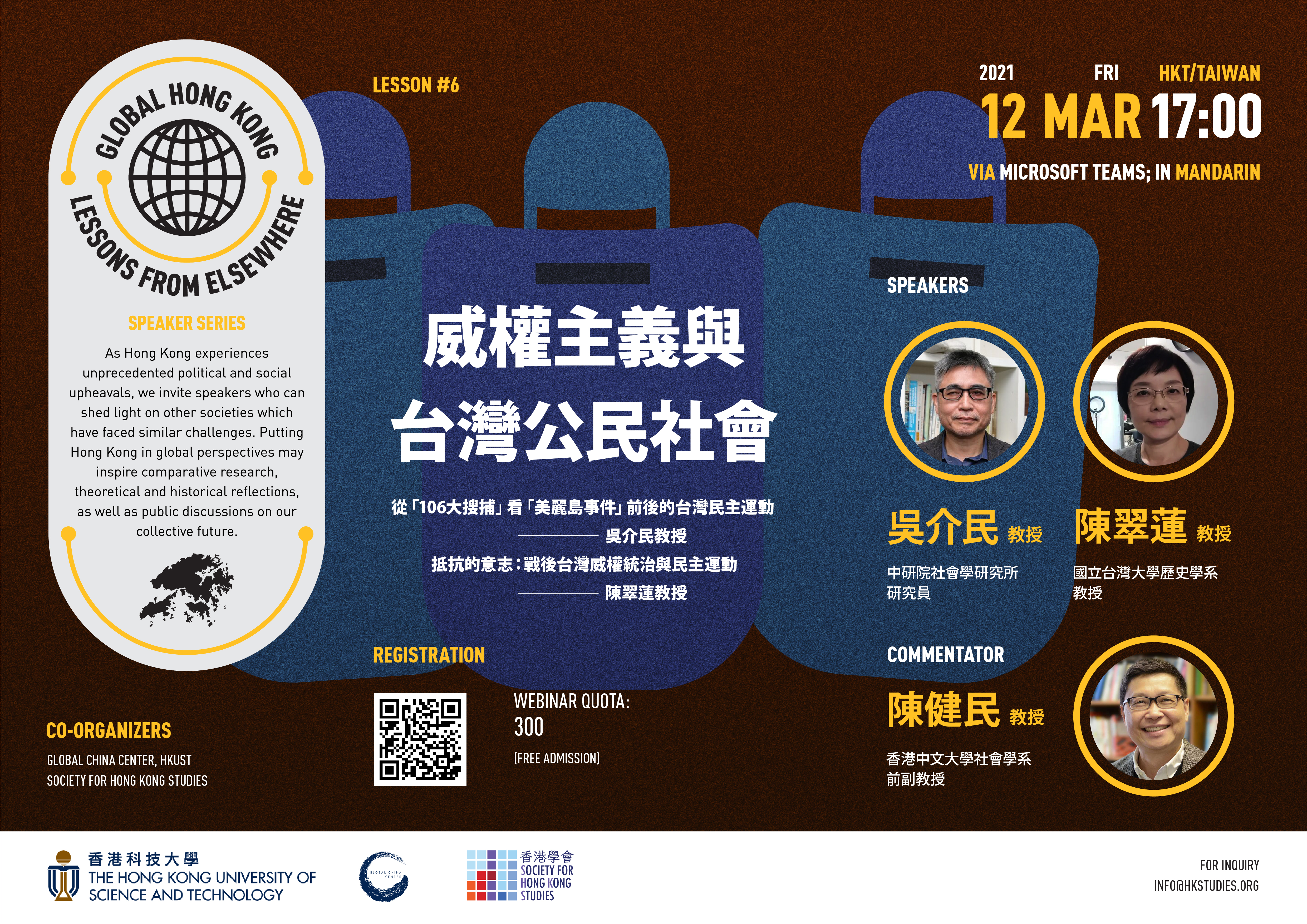Upcoming Events
Past Events
China and Africa's industrialization aspirations: a labour perspective
Zoom
There are emerging claims that African countries will follow Asia in their industrialization drive and that Asian firms, notably from China, may act as catalysts of industrial transformations by investing and operating in Africa. This session will look at this new dynamics with a focus on employment outcomes, i.e. job creation for young Africans, working conditions and skill development from a comparative perspective. The main argument is that the creation of new jobs in manufacturing and infrastructure construction contributes to the process of structural transformation through the labour market but not without frictions and challenges. The building of an industrial workforce has never been harmonious. READ MORE...
Taiwan Civil Society in Authoritarian Era 威權主義與台灣公民社會
Microsoft Team
吳介民教授〈從「106大搜捕」看「美麗島事件」前後的台灣民主運動〉內容簡介 「106大搜捕」剛發生時,不少人認為這次鎮壓類似台灣1979年的「美麗島事件」。但「106大搜捕」真的是「香港的美麗島事件」嗎?這場演講將說明,美麗島大逮捕與審判,是國民黨作為外來政權的最後一擊,最終也證明是自我挫敗的一擊。為什麼?因為它根本壓不住台灣社會。 講者將從內外因素進行分析。外部而言,當時東亞冷戰防線正在解除,美中和解使東亞局勢緩和,美國不再需要一個威權的國民黨政權來協助圍堵共產中國。來自地緣政治變遷的力量,解釋了美國對蔣政權態度的轉變。 內部而言:台灣社會力正在茁壯。本土社會要求在國家機器中佔有一定代表性。而面臨政權「外部正當性危機」的國民黨也需要「內部正當性」來維持其統治。因此,開放一定程度的選舉活動,是國民黨不得不做出的妥協,因而持續攪動了自由化的力量。選舉螺旋不斷迫使國民黨統治機器向本土化的方向傾斜。 在價值系統的鬥爭上,國民黨政權的「大中國神話」從1977-78年的「鄉土文學論戰」之後節節敗退。美麗島事件後的「中國結、台灣結」大辯論,更預示了民主化與本土化成為主流價值。 反觀今日香港,國安法建造了阻隔香港與世界的「柏林圍牆」;香港權力結構正在急遽落入「去本土化」、「中國化」;中共勢必企圖根本改造香港,製造「新香港人」。展望前景,自由化的動能何在?除了香港公民社會自身的調整與堅實化之外,中國內部權力結構變化或不變,以及地緣政治關係與美中對抗前景,都將影響中國未來的香港政策。 陳翠蓮教授 〈抵抗的意志:戰後台灣威權統治與民主運動〉內容簡介 二戰結束後,國民黨政府統治台灣,建立起強固的威權體制,獨裁統治幾乎達半世紀之久。威權體制為何能夠發揮強大的社會控制效果?台灣的威權體制有何特性?民眾如何抵抗?如何保存記憶、傳承經驗?台灣的經驗又可以提供香港怎樣的借鏡? READ MORE...

